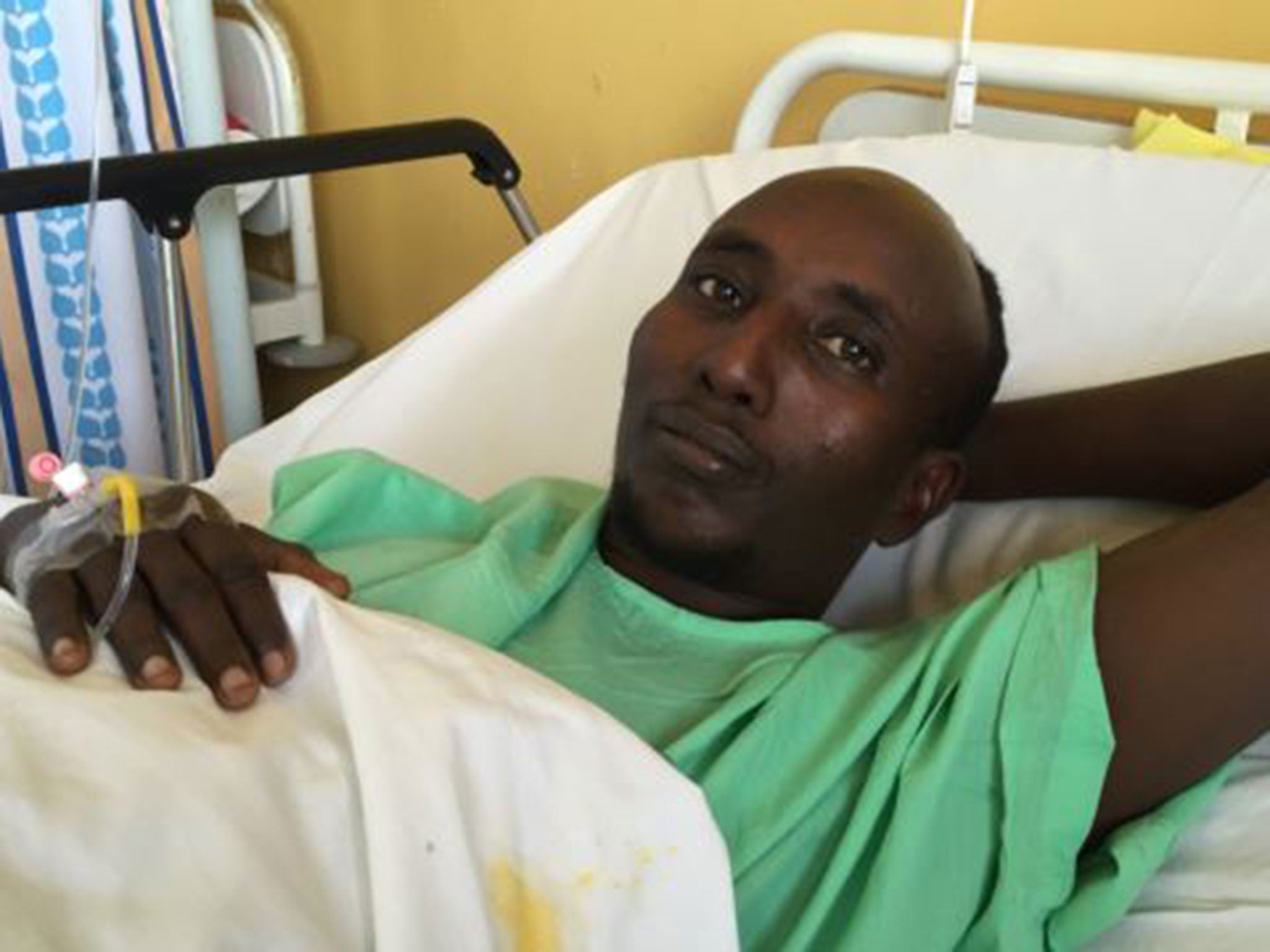Kenyan Muslim man who died protecting Christians in terror attack awarded top honour
'He believed in their right to freedom of worship and he knew that every life is sacred'

Your support helps us to tell the story
From reproductive rights to climate change to Big Tech, The Independent is on the ground when the story is developing. Whether it's investigating the financials of Elon Musk's pro-Trump PAC or producing our latest documentary, 'The A Word', which shines a light on the American women fighting for reproductive rights, we know how important it is to parse out the facts from the messaging.
At such a critical moment in US history, we need reporters on the ground. Your donation allows us to keep sending journalists to speak to both sides of the story.
The Independent is trusted by Americans across the entire political spectrum. And unlike many other quality news outlets, we choose not to lock Americans out of our reporting and analysis with paywalls. We believe quality journalism should be available to everyone, paid for by those who can afford it.
Your support makes all the difference.A Muslim man who shielded Christians in an Islamist attack has been posthumously awarded one of Kenya’s most prestigious honours.
President Uhuru Kenyatta awarded Salah Farah the Order of the Grand Warrior of Kenya "in recognition of his remarkable act of valour" in defending his fellow citizens.
Mr Farah died from his injuries in January after being shot on a bus which was attacked by al-Shabaab militants in December 2015.
As is sometimes the case in al-Shabaab attacks, Muslims were offered the chance to escape.
"They told us if you are a Muslim, you are safe,” Mr Salah told the BBC after the incident.
“There were some people who were not Muslim. They hid their heads."
However, Mr Salah refused to be moved. “We asked them to kill all of us or leave us alone,” he said.
He was hit by a bullet in the ensuing chaos.
President Kenyatta praised his actions in a State of Nation address.
"He died defending people who he did not know. This is because he believed in their right to freedom of worship and he knew that every single life - irrespective of faith - is sacred," President Kenyatta told politicians.
"He is a powerful symbol of our country's ambition to attain the full expression of secure and cohesive nationhood, and he is a costly reminder that we all have a role to play in protecting our freedoms.
"I want to tell his children that their father's sacrifice will never be forgotten - and will be long admired."
The award comes following a social media campaign calling for official recognition of Mr Salah’s actions and to raise money for his family.
Using the hashtag #HeroSalah, nearly 600,000 Kenyan shillings (around £4,150) was donated and will be used to build a house for his surviving relatives.
The activist behind the campaign, Abudallahi Derow, told al-Jazeera: “Salah died serving the country, defending his Christian brothers.”
"He chose to die and save the lives of his countrymen. He is a symbol of unity and strength and his action is an inspiration to many."
While in hospital, Mr Salah explained his actions by saying "people should live peacefully together".
"We are brothers,” he told Voice of America.
"It's only the religion that is the difference, so I ask my brother Muslims to take care of the Christians so that the Christians also take care of us... and let us help one another and let us live together peacefully."
Militant group al-Shabaab are an extreme Islamist group linked with al-Qaeda.
They have been conducting an insurgency aimed at establishing Islamic rule in Somalia, which sometimes spills over the southern border into Kenya.
In January, dozens of Kenyan soldiers were killed in an attack on an African Union military base in Somalia.
The group is also responsible for the Garissa University attacks which took place in April 2015, killing 148 people.
Join our commenting forum
Join thought-provoking conversations, follow other Independent readers and see their replies
Comments